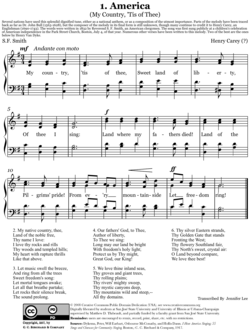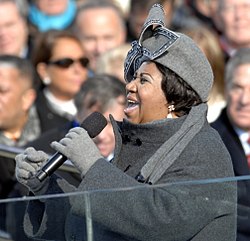 Sheet music [1] | |
Unofficial national anthem of the United States of America | |
| Also known as | "America" |
|---|---|
| Lyrics | Samuel Francis Smith, 1831 |
| Adopted | July 4, 1831 ( de facto ) |
| Relinquished | March 3, 1931 |
| Succeeded by | "The Star Spangled Banner" |
| Audio sample | |
Vocalists with concert band accompaniment, United States Air Force Heritage of America Band, 2002 | |
"My Country, 'Tis of Thee", also known as "America", is an American patriotic song whose lyrics were written by Samuel Francis Smith. [2] The song served as one of the de facto national anthems of the United States (along with songs like "Hail, Columbia") before the adoption of "The Star-Spangled Banner" as the official U.S. national anthem in 1931. [3] The melody is adapted from the de facto national anthem of the United Kingdom, "God Save the King".
